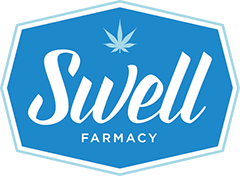The state of legalization of recreational and medical marijuana continues to grow, and yet, marijuana remains federally classified as Schedule I drug. Arguably more dangerous than cannabis or marijuana is alcohol, which is regulated and taxed by the federal government. But these classifications and legalities are confusing to say the least. For example, when you look at the facts, alcohol use seems to be a higher risk for substance abuse than cannabis. By all indications, weed is safer than alcohol; in fact, alcohol, not cannabis, is labeled as “high risk” along with heroin, cocaine, and nicotine.
Alcohol vs. Weed: Why Marijuana is the Safer Choice
Cannabis Has Zero Risk of Addiction
This is perhaps the most important difference between alcohol use and marijuana use. Alcoholism is a serious problem and affects people regardless of age, race, gender, and socioeconomic status. Recent stats show that teen alcohol use takes 4,700 lives every year which is more than all illegal drugs combined and alcohol is a major factor in violent crimes.
Conversely, there is no evidence that weed is addictive and the majority of experts and researchers agree that it is not. In fact, addiction specialists have recently started using cannabis as an exit treatment for opioid addiction.
Cannabis Has Zero Risk of Overdose
Similar to the reason above, this is a major differentiator between alcohol and marijuana. In a time when addiction and overdoses are of epidemic proportions in the U.S. are more prevalent than ever, it’s important to know that a fatal dose of marijuana would require ingestion of fifteen hundred pounds of flower in 15 minutes…a dose that is impossible to reach.
Alcohol poisoning claims 2,200 lives in the United States every year, according to the Centers for Disease Control and Prevention. This number is only related to alcohol poisoning deaths and does not include deaths associated with long-term alcohol use such as cirrhosis of the liver, heart disease, and pancreatitis.
Cannabis Does Not Cause Brain Damage
The amount of research showing the extensive psychological and physical damage heavy alcohol use has on the brain is staggering. This damage includes loss of cognitive abilities, such as abstract thinking and memory retainment, as well as Wernicke–Korsakoff syndrome, and shrinkage of the physical brain, according to the American Academy of Neurology.
Heavy marijuana use does not damage the adult brain. In fact, studies show that cannabis has a positive impact on the brain, particularly in Alzheimer’s patients. A preclinical study published in the Journal of Alzheimer’s Disease in 2014 found that very small doses of THC slowed the production of beta-amyloid proteins, which are thought to contribute to the progression of Alzheimer’s.
Cannabis is Not Associated with Violence
The evidence supporting a link between alcohol and violence (both domestic and sexual) is abundant. The National Council on Alcoholism and Drug Dependence says that alcohol is a factor in 40% of all violent crimes. Results from a 2014 study show that regular cannabis use was linked to significantly lower rates of intimate partner violence.
Cannabis Does not Cause Loss of Consciousness or Blackouts
The National Institute on Alcohol Abuse and Alcoholism defines a “blackout” as a period of amnesia about things a person did or places a person went while intoxicated. It likely goes without saying that not remembering things that happen to or around you can be very dangerous. During a blackout, you may be technically awake, but you are not of sound mind, and this is a huge risk to your health and safety and of those around you.
While ingesting, consuming, or smoking a bunch of weed might make you fall asleep, falling asleep is much different than blacking out.
Based on the information above, it seems like the safety debate on alcohol vs. marijuana is a no-brainer and it’s clear that weed is safer than alcohol. So why is the federal prohibition on marijuana still holding strong? Let us know your thoughts in the comments!
Have more questions? Contact us or come in and chat with a budtender at one of our four locations.
